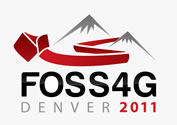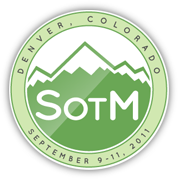Implementation, challenges and future directions of integrating services from the GIS and decision science domains: a case of Distributed Spatial Multi-Criteria Evaluation
Session Type:
Academic Session
Presenter(s):
Dr Luc Boerboom, Faculty of Geo-Information Science and Earth Observation of the University of Twente
Mr Ozgun Alan
We are implementing an open source project for spatial decision making called Distributed Spatial Multi-Criteria Evaluation (D-SMCE) under an EU project for inter-regional development on forestry and climate change adaptation (ForeStClim). The need is to compare how in different regions of forest organizations, distributed across Northwestern Europe, evaluate over space and time the consequences of climatic changes and adaptive management alternatives. We therefore speak of distributed evaluation. Interestingly, each of these regions consider their own data, forest and climate change policies, data policies, and technological environments. The underlying motivation is to bring non-spatial decision aiding web services into the spatial domain.
In this paper, we first describe what D-SMCE is and what it does. We designed an extensible architecture for integrating services of two domains, respectively the GIS and Decision Sciences domain. Thereby we delegate domain expertise to available implementations. We use the Service Oriented Architecture (SOA) paradigm to build our D-SMCE service and application. Integration is implemented by the use of open specifications and protocols coming from these domains. D-SMCE is not only extensible in terms of the external services it uses, it also is extensible as an application because it is developed with OSGi technology that brings advanced modularity.
Second we share some important observations about implementation challenges we have addressed. These challenges are related to the design of integration of the two domains, the ability of specifications to address real implementation problems, and the reliability and quality of available open source tools. These lead us to conclusions about the workarounds we had to implement.
Third and finally we give an overview of the milestones for the project, future challenges as well as opportunities in terms of new research and development topics, with reference to the sourceforge. Some of these topics relate to the spatial domain, e.g. the use of Web Processing Services (WPS) for pre and post processing around decision analysis, others to the decision sciences domain, e.g. the integration of other non-spatial data sources and services, or collaborative decision making.
Speaker Bio:
Mr. Ozgun Alan has a degree in statistics and MSc degree in computer science with software development experience in private and public sector.
Schedule info
Time slot:
Thu, 09/15/2011 - 1:00pm - 1:30pm
Room:
Spruce 










